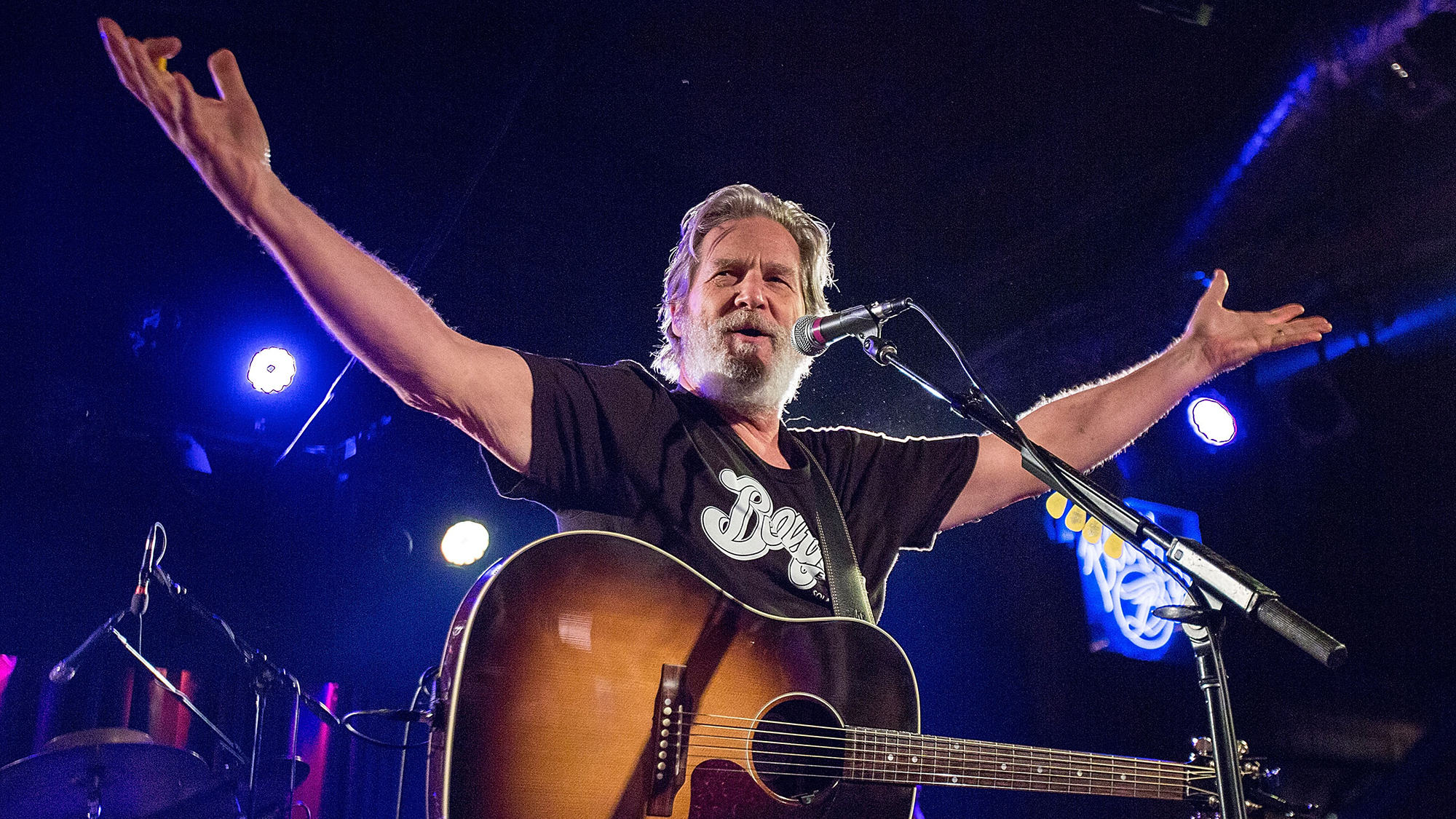"I'm just pushing and fighting till I get somewhere.” Goose guitarist Rick Mitarotonda reveals his Sonny Rollins, "never say die" approach to marathon guitar solos
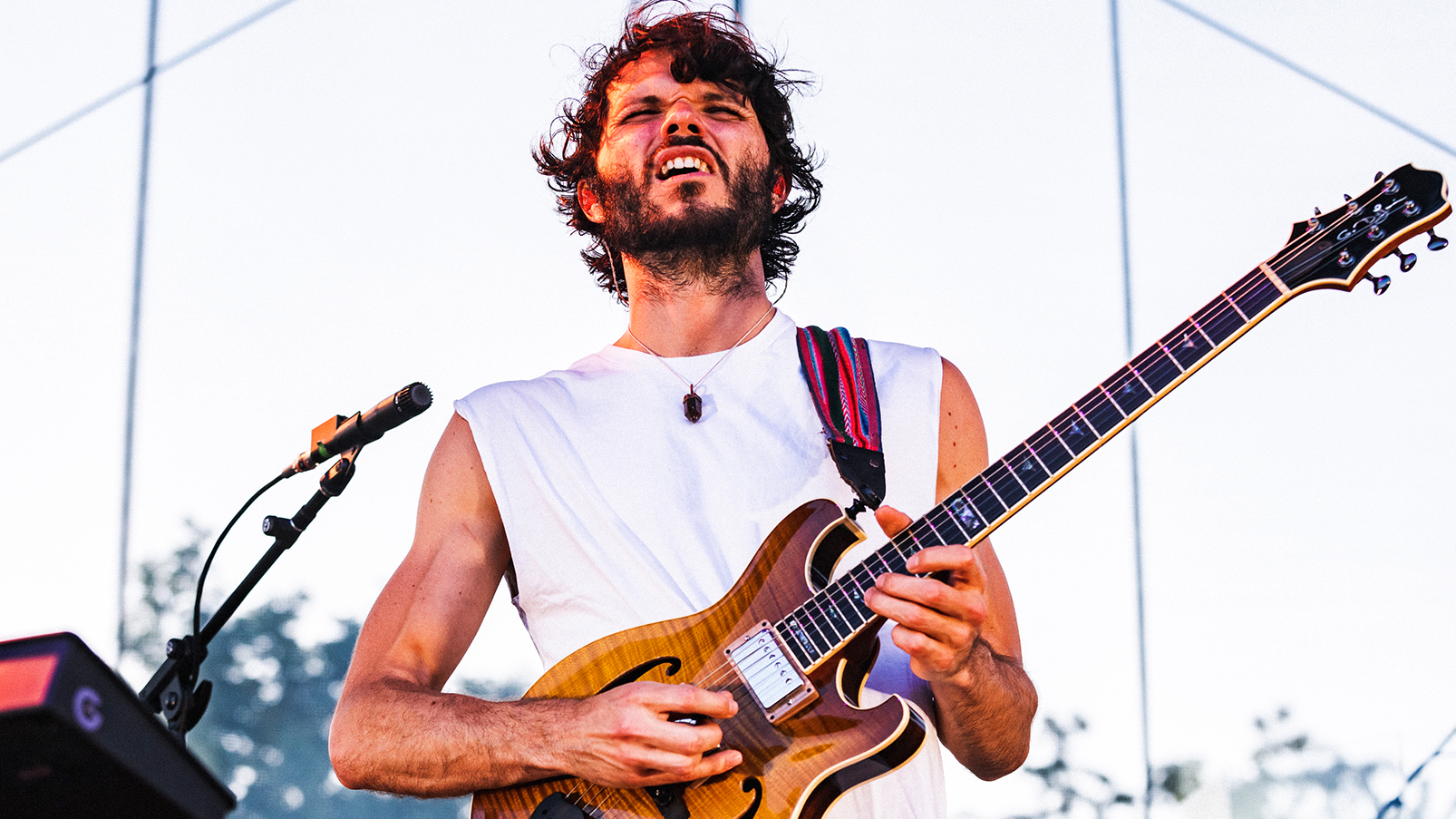
All the latest guitar news, interviews, lessons, reviews, deals and more, direct to your inbox!
You are now subscribed
Your newsletter sign-up was successful
When told that a few of his band’s new songs, particularly the shimmering, laid-back single “Your Direction,” have a distinctive 1970s West Coast soft-rock vibe, Goose guitarist, singer and all-around main man Rick Mitarotonda nods knowingly.
“Yacht rock. I’ve definitely been hearing it a lot lately,” he says. “I can say this: We’ve been called worse things.”
What those things are, Mitarotonda doesn’t say, but he adds, “I don’t know enough about yacht rock to have a stance on it. However people want to relate to the music we’re making is up to them. I know people called Steely Dan yacht rock, and Donald Fagen hated it.”
It’s interesting that he brings up Steely Dan, as his slinky, melodic end solo on “Your Direction” bears more than a trace of Skunk Baxter influence. Mitarotonda claims any such reference is simply baked in his DNA.
“I think there was a period in my life when I was listening to more music from that era,” he says. “But I’m not actively going to that stuff.”
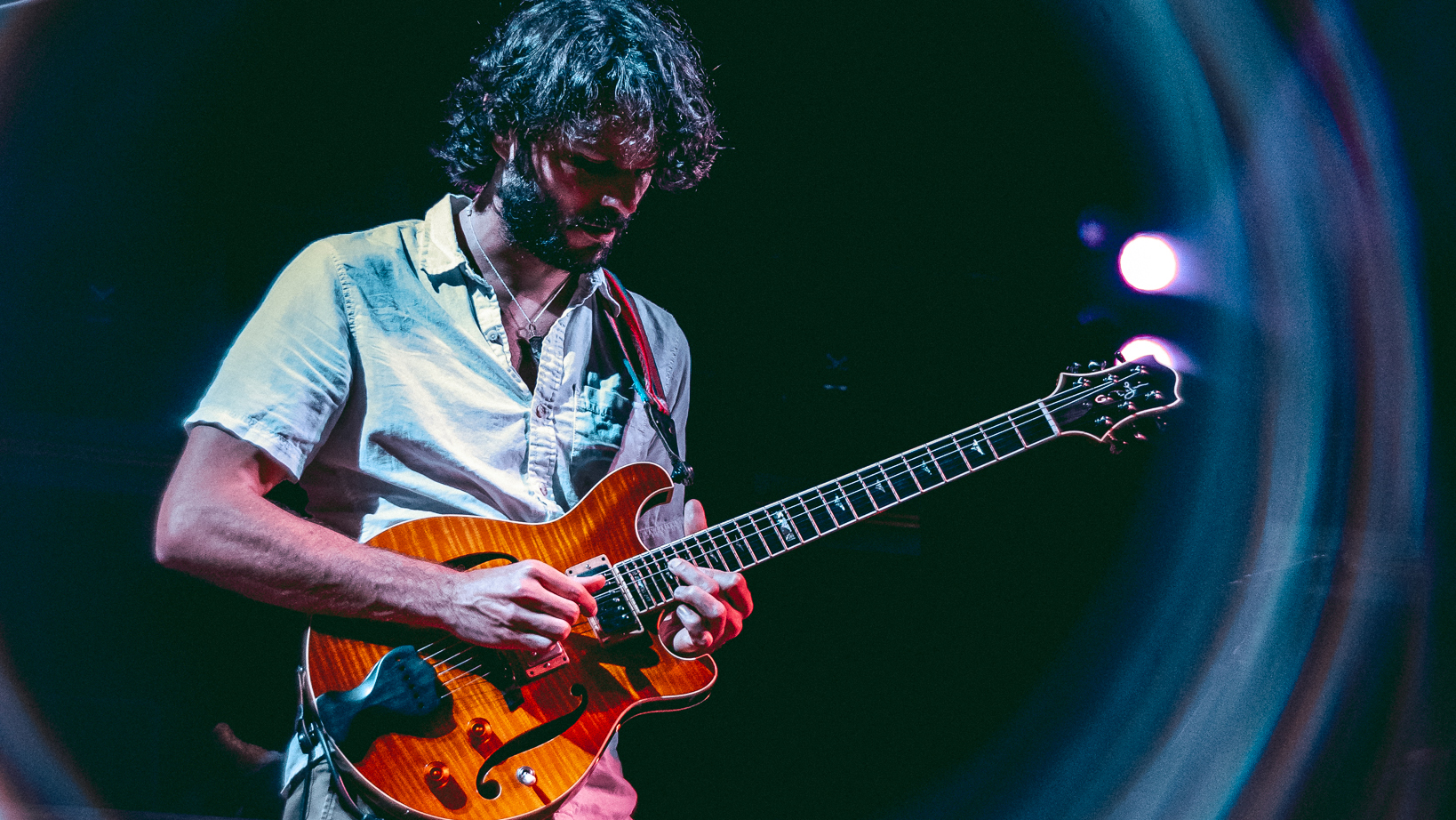
A lot has happened in Goose world over the past few years. They’ve become certified arena headliners (in June they play Madison Square Garden), they’ve changed (cofounding member Ben Atkind left in late 2023 and was replaced by Cotter Ellis) and, earlier this year, they dismissed percussionist Arevalo from the flock.
“Relationships can be tough,” says Mitarotonda, who is loath to discuss details regarding his former band mates. “We're following the music first and foremost. Where we are now, the connection we have with Cotter and the communication within the band, it’s better than ever.”
All the latest guitar news, interviews, lessons, reviews, deals and more, direct to your inbox!
Atkind and Arevalo both contributed to Goose’ sumptuous new album, Everything Must Go, but the majority of the record features the now lean-and-mean lineup of Mitarotonda, Ellis, bass guitar player Trevor Weeks and keyboardist-guitarist Peter Anspach. The disc is a bright and breezy affair, tuneful yet adventurous, filled with righteous grooves, elaborate electric guitar solos and other assorted bits of musical hijinks.
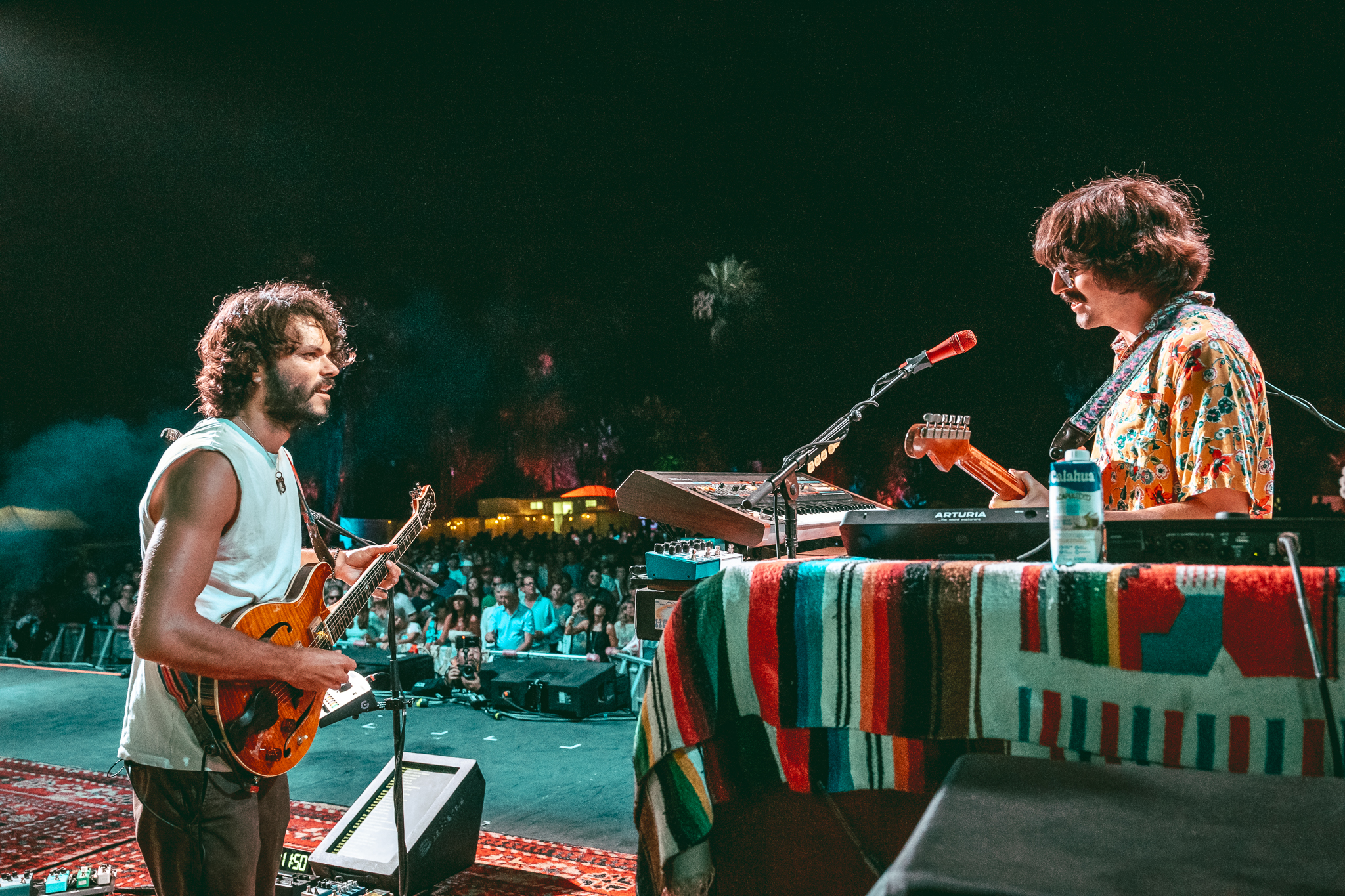
But while the band clearly wants to get to “the good stuff,” i.e., the jams, they don’t skimp on the solid songcraft: The seven-minute anthem “Give It Time” unfolds in bravura sections held together by emotional connective tissue, and when it explodes in rapture, its joy is entirely earned.
With the exception of four songs — “Your Direction,” “Dustin Hoffman,” “Iguana Song” and “How It ends” — the tracks have been road tested extensively, so they carry the audience seal of approval. What’s interesting about the older material is how alive and fresh it sounds – nothing has become routine or played to death.
“The version of a song doesn't need to sound like what we play live,” Mitarotonda says. “Because we're playing all these shows and experimenting all the time, we can play different versions of the same song from night to night.”
Given that, how does the band knows which version should end up on an album.
Mitarotonda smiles. “I think it's all about following what we're most excited by collectively. It's usually pretty obvious.”
Any time a band breaks big, it’s common to hear some of their first fans grumble that the group has lost its way. Do you still consider Goose to be a jam band?
I do, yeah. I don't have strong feelings about terminology when it comes to music. I have opinions personally, and something I said a while ago got misconstrued.
I remember. You dissed some jam bands. [In a 2022 interview with Uproxx, Mitarotonda called the jam-band label “a demeaning title, because, frankly, there are a lot of cheesy and not-great jam bands that have existed over time.”]
Yeah, yeah. A lot of people interpreted that as if I didn't think we were jam band or want us to be called a jam band. That's not the case. We are cut and dry a jam band. We improvise a lot. There's no dancing around the fact that we are a jam band, and that's not going to change at any point. I don't think it's the most elegant of terms. I just think it's not a great term.
That happens. I mean, is jazz fusion a great term?
Yeah. It’s like, all these terms — yacht rock, jam band…. We're a band. We write songs, we jam, we improvise. Whatever people are going to call it, people are going to call it. We were throwing around “indie groove” forever, and people have been taking it seriously. Few have caught on that it's a joke.
Did you get some hard blowback at the time from that comment?
I think so. It was a while ago. You know, there's only so much you can do. I mean, I grew up listening to jam bands. I went to Umphrey’s McGee shows. I was obviously a massive Phish fan in high school. That band changed my life. I was listening to a lot of jazz and a lot of Grateful Dead and all these bands.
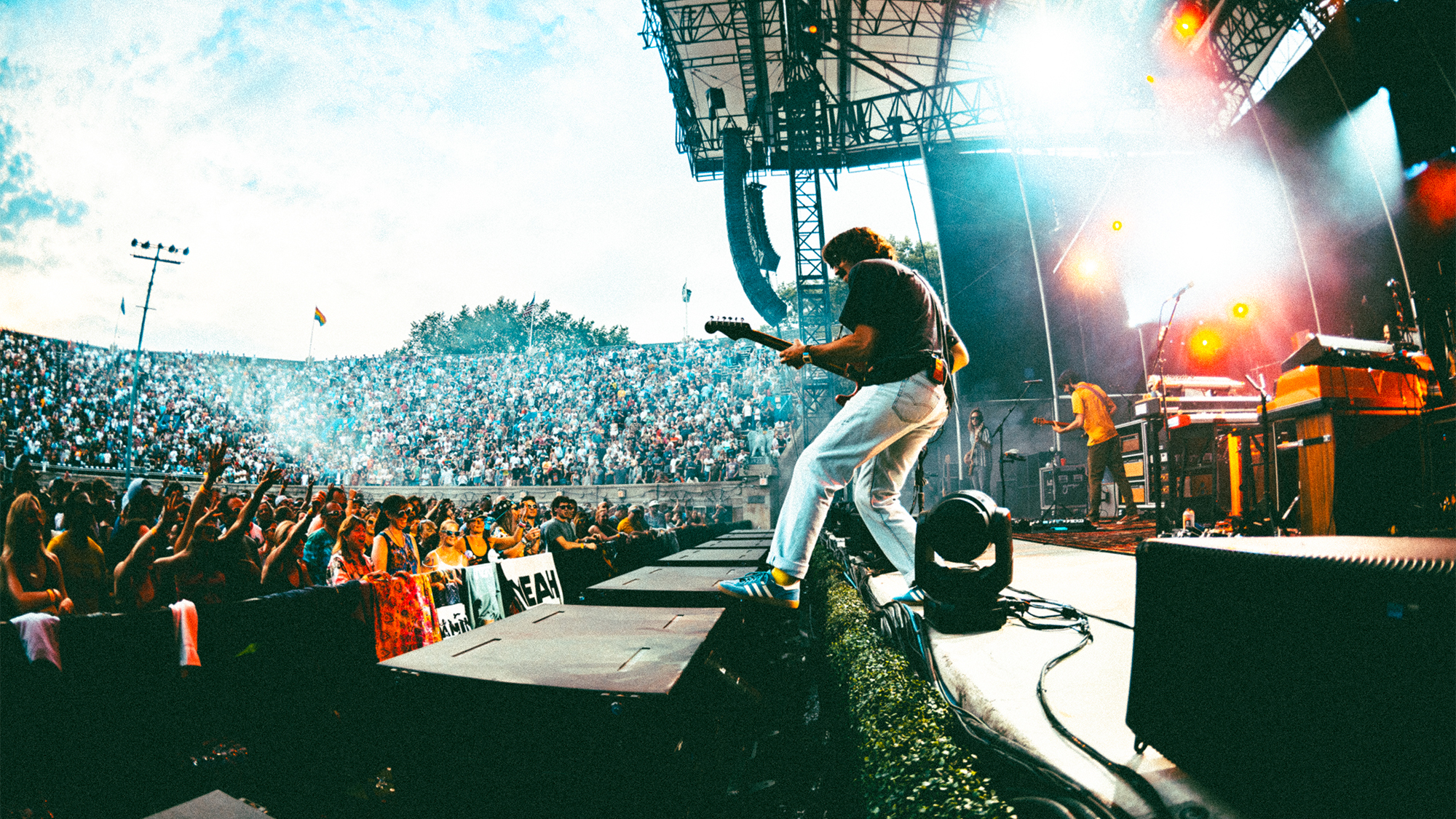
A lot of people who aren’t into those bands — or any groups we can pile on the jam band category ‚ love Goose.
I guess they like the songs. I don't know how else that could be explained. Maybe they found themselves at a show.
That kind of stuff excites me, though. Just thinking about people who haven't been exposed to long-form improvisational music, and they find their way to a show because they like some song, and then the next thing they know they're confronted with a 20-minute improvisation.
Now, maybe some people are like, “I gotta get the hell out of here.” [laughs] But some people are like, “Wow, this is actually kind of awesome.” That's a cool thing to me.
You don’t have a percussionist onstage anymore. Does that give you more musical space to explore?
Totally. A percussionist can fill out a sound and add texture and complexity. But I think we've found that we're communicating a lot better as a four-piece right now. It’s more focused, and it feels appropriate for where we are right now.
We’re still developing this relationship. It takes time. There's the initial chemistry, but the connective tissue of a band forms over time. We’re going to be building that with Cotter.
You’ve played a Paul Reed Smith guitar for many years, but recently you’ve been using the Empress.
It’s a custom guitar from a builder in California named Greg DeLuis. He’s built a couple guitars for me. He gave me one back in 2023, and I’ve been playing it ever since. It feels great. We're in talks about continuing to work on new builds and new ideas.
You do a great long outro solo in the track “Dustin Hoffman.” I always wondered, when you go way out with a solo, do you ever get stuck? And if so, how do you get unstuck?
I think mostly when we're in that kind of space, it's a collective thing. The band is like, “Where are we?” I will say that I feel that way, but I have that experience a lot less these days. I used to have that experience a lot.
And what would you do?
I heard this story about [jazz tenor saxophonist] Sonny Rollins. I guess he was notorious for doing really long 30-minute solos, and people would ask him why. He said something to the effect of, “I’m just pushing and fighting till I get somewhere.”
For better or for worse, I relate to that. I think there's been a lot of times, especially in the past, when things weren't flowing, and I would keep fighting until it felt like we got somewhere. I don’t know if we actually did. I would listen back to our stuff and be like, “Jesus, man, shut up already.” [laughs]
But it was that fight of trying to get somewhere, and that can be antithetical to the best way of actually getting somewhere, which is to get out of the way and let the music take you. The second you stop pushing or fighting, that's when a wave just takes you, and the band collectively winds up somewhere really interesting.
You go to a few places in “Iguana Song.” The second half is basically one long guitar solo. You start with this cool freak flag soloing, and then it changes up into a cosmic-jazz thing.
Peter brought that song in. It had a couple of ascending triadic movements, building each time but occurring at random. At the same time, the band is cruising almost krautrock style, and there’s this solo happening. But it’s not a building-the-story solo. It’s more like throwing ideas around.
Basically, we wrote it in the studio on the day we were recording it, and I was just cueing it at random, using a microphone each time those hits would happen. Finally it reaches the fourth time, which is the full line, and it has a little ending and then we're out.
That was the concept, and it was pretty fun. Now when we do it live, it still needs to be cued because there's no formula to when it happens. While we're coasting krautrock style, I just shriek into the mic, and then we hit the run.
In performance, what do you do when you’re giving everything but the audience isn’t with you and there’s no lift-off?
These things are unknowable. Sometimes there's this objective, tangible difference in energy. Some nights are just electric, and that’s great. What differentiates them from the nights where you just can’t get the vibe, that’s hard to predict. I just know that we do what we can, and of course, we’re playing the type of music where you're trying to surrender yourself to whatever comes. There's a lot of openness and freedom built into the context of the music.
Sometimes you can do no wrong, and any song you pull out and anything you do, it's just going to work. Other nights, no matter what you do, nothing works. At the same time, it's so perception based. If I feel like shit, if I didn't sleep well or my neural chemicals aren't flowing right, then it's not going to sound good to me. Music doesn't sound good to you when you don't feel good in your own body.
On the other hand, have you had nights when you going on stage not feeling 100 percent, but the crowd lifts you up?
Oh, absolutely. Sometimes we play our best shows when we're exhausted. You just kind of surrender at that point.
It happened this past weekend. I was at the end of my rope physically, and I had no choice but to surrender. But then I caught that wave.
You’re like a doctor at the end of a 17-hour shift who somehow manages to save the patient.
Yeah, exactly. It's a mysterious thing, which is maybe what keeps us all interested. It's always different. You never know what it's going to be. There's so many factors, it’s unknowable.

Joe is a freelance journalist who has, over the past few decades, interviewed hundreds of guitarists for Guitar World, Guitar Player, MusicRadar and Classic Rock. He is also a former editor of Guitar World, contributing writer for Guitar Aficionado and VP of A&R for Island Records. He’s an enthusiastic guitarist, but he’s nowhere near the likes of the people he interviews. Surprisingly, his skills are more suited to the drums. If you need a drummer for your Beatles tribute band, look him up.


